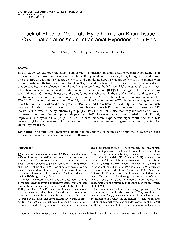摘要
In this study, we explored the effect of moderate hypothermia on brain tissue oxygenation following acute intracranial hypertension in micropigs. Twenty healthy juvenile micropigs weighting 4-6 kg were randomized into two groups: a normothermia group (n=10) and a moderate hypothermia group (n=10). The animals were intravenously anesthetized with propofol (4mg/kg), an endotracheal tube was inserted, and mechanical ventilation was begun. Autologous arterial blood was injected into the left frontal lobe to establish acute intracerebral hematoma and intracranial hypertension (intracranial pressure [ICP]>40mm Hg) in all animals. Cooling was initiated at 30min after injection of the blood, and was achieved via the use of an ice bath and ice packs. In the hypothermia group, the brain temperature decreased to 33-34 degrees C. Brain temperature was maintained at 37 /- 0.38 degrees C in the normothermia group. The ICP, cerebral perfusion pressure (CPP), brain tissue oxygen pressure (PbrO2), brain tissue carbon dioxide pressure (PbrCO2), and brain tissue pH value (pH(br)) were continuously monitored for 3 h in all animals. Compared to normothermia group, ICP values significantly decreased and CPP markedly improved in the hypothermia group (p<0.05). Further, pH(br) also markedly increased and PbrCO2 decreased significantly in the hypothermia group (p<0.05). However, PbrO2 did not statistically significantly improve in the hypothermia group (p>0.05). In sum, moderate hypothermia significantly decreased ICP, reduced PbrCO2, and increased pH(br) values, but did not improve cerebral oxygenation following acute intracranial hypertension.
- 出版日期2010-2
- 单位上海交通大学
